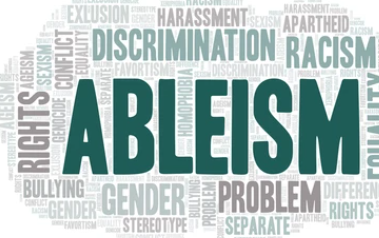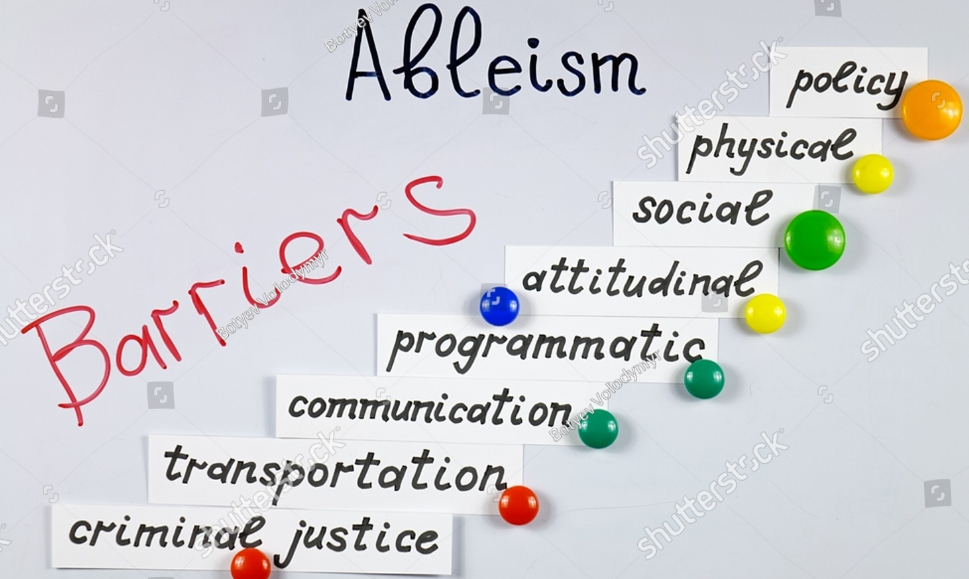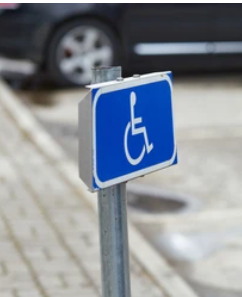July is…
b. the beginning of yellow jacket season
d. the last full month before school starts up again in mid-August
e. annoyingly hot and humid
f. a good time to read and think about long blog postings
h. all of the above
If you said “h”. you’d be right!!
One in four adults have a disability. That’s 61 million adults in the US! Disability impacts all of us. (Click the graphic or click here to see a neat chart!)
I follow several blogs and a podcast that focus on living with disability, disability advocacy, and by extension, I guess, “Disability Pride Month.” There’s actually a lot of controversy and a variety of opinions about disability pride. Emily Ladau (author and blogger at Words I Wheel By blog) offers an interesting perspective on why Disability Pride Month might not be as worth “celebrating” as other “Pride Months.” Check it out here.
She talks about Ableism. What’s “ableism?” I’m glad you asked!
In other words, it is the assumption that able-bodied bodies are the “norm” and all others are compared to it and are less than that norm. It’s similar in that way to racism, where Whiteness is the “norm” and privileges accrue to White people just because they are White. Our society believes that a disability makes a person broken, and that disability is bad, sad, negative, and a problem to be fixed, rather than a normal, inevitable part of the human experience.
Even though the US has codified disability equality in such federal civil rights laws as the Americans with Disabilities Act, assumptions, misconceptions, and harmful perspectives abound. Much like with racism, ableism is typically invisible, and generally denied or minimalized by people who do not have a disability.
- Lack of knowledge about the Americans with Disabilities Act’s civil rights protection; lack of compliance with the law.
- Failing to incorporate accessibility into the planning and implementation of social media, marketing, and corporate meetings, sometimes even after the PWD (person with a disability) has patiently explained that accessibility is actually required. I can’t tell you how many classes, webinars, and meetings I have participated in … which have denied access by refusing to provide a sign interpreter or captioning.
- Assuming that disability-related accommodations “cost too much” rather than considering the “cost” of excluding the person from full and equal participation in the meeting.
- Believing that disability is either tragic or inspirational. (In the disability community, this is called “Disability porn!”
- Creating an excellent video but assuming YouTube’s auto captioning is “enough.” (Watch it once… unedited auto-captions can be confusing… and hysterical sometimes!)
- Forgetting to include PWD “at the table” when making decisions.
- Assuming mental illness leads to violence; labeling violent behavior as “crazy,” “sick” or “psycho.”
- Talking to a PWD as if they are incapable of understanding you. Talking about them instead of directly to them. Treating them as if they cannot participate fully.
- Telling a PWD that you know best what type of accommodation they need, rather than engaging in a conversation with them to find out what works best.
- Telling or assuming a PWD that they are “too expensive” to be fully included.
- Being unable to spend my money to shop because the store has aisles that are too narrow for a power wheelchair.
- Being unable to access my church all winter because there are no usable curb cuts and the lawn I usually have to traverse is covered with snow.
|
|





